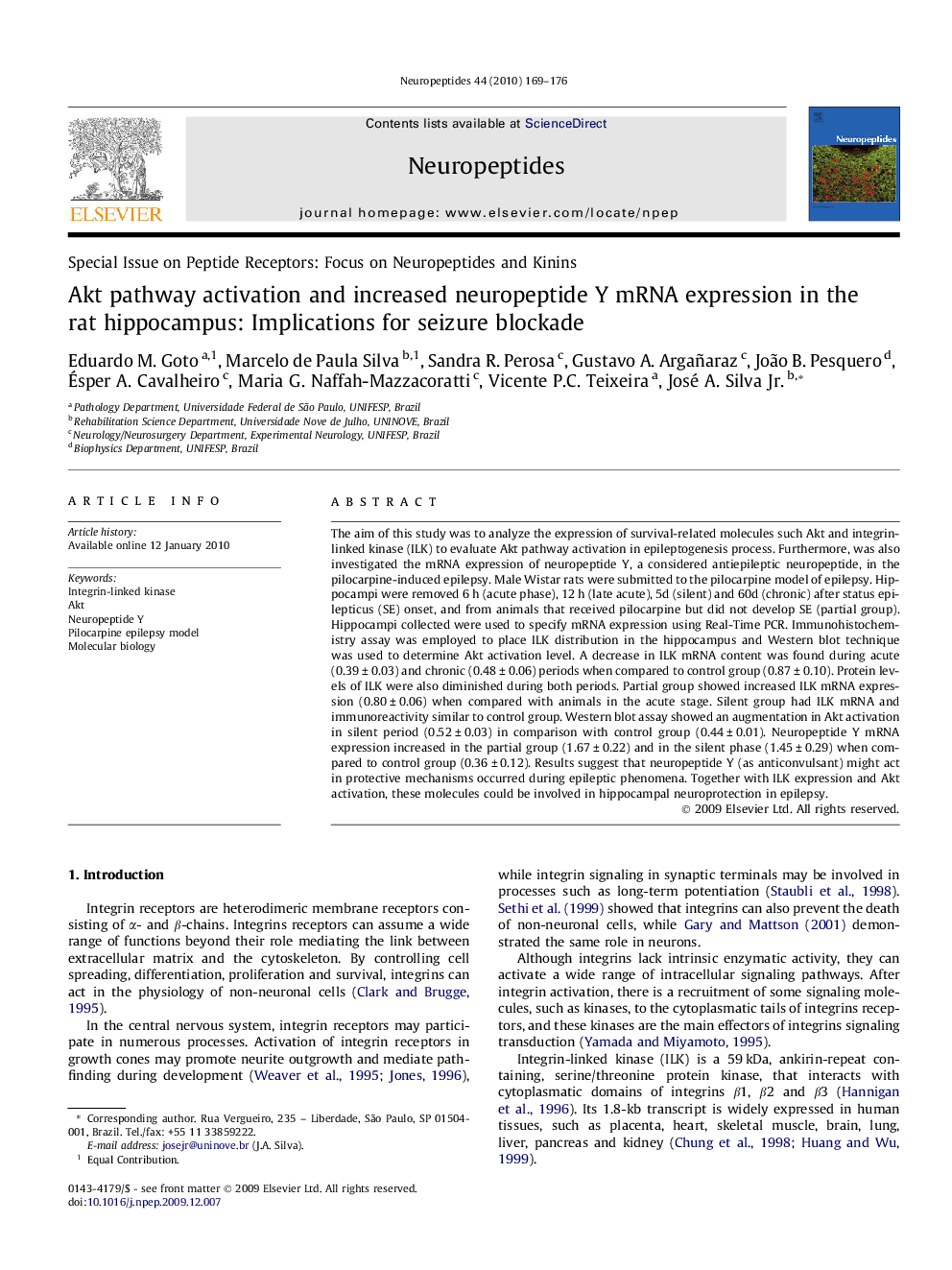| Article ID | Journal | Published Year | Pages | File Type |
|---|---|---|---|---|
| 2808243 | Neuropeptides | 2010 | 8 Pages |
Abstract
The aim of this study was to analyze the expression of survival-related molecules such Akt and integrin-linked kinase (ILK) to evaluate Akt pathway activation in epileptogenesis process. Furthermore, was also investigated the mRNA expression of neuropeptide Y, a considered antiepileptic neuropeptide, in the pilocarpine-induced epilepsy. Male Wistar rats were submitted to the pilocarpine model of epilepsy. Hippocampi were removed 6 h (acute phase), 12 h (late acute), 5d (silent) and 60d (chronic) after status epilepticus (SE) onset, and from animals that received pilocarpine but did not develop SE (partial group). Hippocampi collected were used to specify mRNA expression using Real-Time PCR. Immunohistochemistry assay was employed to place ILK distribution in the hippocampus and Western blot technique was used to determine Akt activation level. A decrease in ILK mRNA content was found during acute (0.39 ± 0.03) and chronic (0.48 ± 0.06) periods when compared to control group (0.87 ± 0.10). Protein levels of ILK were also diminished during both periods. Partial group showed increased ILK mRNA expression (0.80 ± 0.06) when compared with animals in the acute stage. Silent group had ILK mRNA and immunoreactivity similar to control group. Western blot assay showed an augmentation in Akt activation in silent period (0.52 ± 0.03) in comparison with control group (0.44 ± 0.01). Neuropeptide Y mRNA expression increased in the partial group (1.67 ± 0.22) and in the silent phase (1.45 ± 0.29) when compared to control group (0.36 ± 0.12). Results suggest that neuropeptide Y (as anticonvulsant) might act in protective mechanisms occurred during epileptic phenomena. Together with ILK expression and Akt activation, these molecules could be involved in hippocampal neuroprotection in epilepsy.
Related Topics
Life Sciences
Biochemistry, Genetics and Molecular Biology
Endocrinology
Authors
Eduardo M. Goto, Marcelo de Paula Silva, Sandra R. Perosa, Gustavo A. Argañaraz, João B. Pesquero, Ãsper A. Cavalheiro, Maria G. Naffah-Mazzacoratti, Vicente P.C. Teixeira, José A. Jr.,
